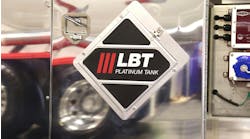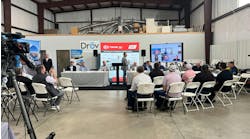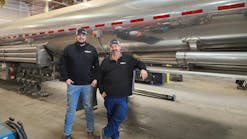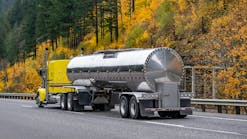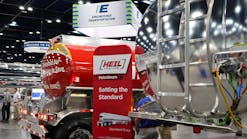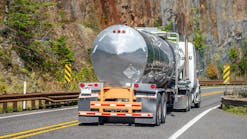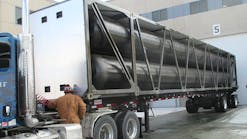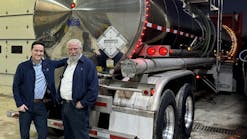Multi-tank fuel trailers: An efficiency-boosting advantage
For diesel distributors in today’s competitive markets, every minute and dollar count. Finding efficiencies means finding an edge, especially for new or growing businesses looking to bolster their margins.
Enter multi-tank fuel trailers, an increasingly popular tool for distributors to expand their versatility, cut costs, and open new job opportunities. For small- to medium-sized operations, multi-tank fuel trailers can enable more fuel drops in more remote locations—without the need for hazmat placarding or a commercial driver’s license (CDL) in most cases.
All that adds up to increased revenue for minimal investment: A recipe for efficiency and growth. That’s precisely why the multi-tank fuel trailer category is emerging; it’s driven by a demand for convenience and flexibility among diesel distributors and those they serve.
Here’s how these fuel trailers can boost a diesel distribution business, as well as what to know before buying one.
No hazmat and CDL? How a multi-tank fuel trailer works
A fuel trailer provides a tow-anywhere solution for delivering fuel, making it ideal for most wet hosing and last-mile delivery applications on hard-to-reach sites. Wherever a truck can go, a fuel trailer can follow.
Once on a remote site, the trailer can be used with a remote bulk fuel tank for last-mile fuel service without waiting for additional deliveries. That means instant availability without downtime or delays, saving money and manpower. A fuel trailer may also include a custody transfer meter, which assists distributors in selling fuel directly from the trailer itself.
What’s more: The precise designs of some multi-tank fuel trailers, such as the MultiCube by Western Global, can enable drivers to safely and legally transport diesel without the need for hazmat placarding or, in most cases, a CDL.
How? Although diesel is classified as combustible under the federal hazmat regulations (49 CFR 173), it can be transported in tanks that are under 119 gallons without the need for a hazmat endorsement (49 CFR 173.150(f)). The MultiCube, for example, meets this exception because it is made up of six independently isolated tanks with a maximum capacity of 105 gallons per tank. (It’s important to note that local regulations may apply, so always consult with local officials on regulations applicable to specific operations.)
Shedding the need for a hazmat endorsement and CDL opens new avenues for many distributors. The United States is expected to face a shortage of 160,000 truck drivers by 2030, the American Journal of Transportation reports, stemming from an aging workforce and shifting attitudes on the profession among young people and current drivers.
By reducing the need for drivers with CDLs and hazmat endorsements, companies can dramatically widen their hiring pools for prospective drivers. Enabling distributors to take on new drops with those new drivers enables them to deliver more quickly and efficiently, significantly reducing labor costs.
Fuel trailers: An emerging product category
It’s that combination of convenience, control and cost savings that has made multi-tank trailers so popular in recent years, especially among small- to mid-size distributors, farmers, contractors, and municipalities. They provide a real advantage for companies seeking to maximize their resources, particularly in fleet refueling and highway diesel transport.
Distributors, rental companies and dealers may also rent or sell trailers to contractors, providing another revenue stream. On construction sites, trailer-mounted tanks let contractors and users take control of their fueling needs. That means diesel is always available, and usage can be quantified and monitored.
The operational efficiency of fuel trailers, plus their low startup cost, has made them an attractive avenue for growth in several other industries, too. It’s not uncommon to find fuel trailers at work with agricultural and rental businesses, as well as municipalities working in limited-access sites.
Key legislation in recent years, including the Infrastructure Investment and Jobs Act (2021) and Inflation Reduction Act (2022), set the stage for overall growth in the construction industry. That means projects revving up diesel demand for years to come.
Expect multi-tank diesel fuel trailers to ride the wave of that construction industry growth, especially for distributors and contractors who need to quickly staff up without the hurdles of hazmat or CDL, in most cases.
Buying a fuel trailer: What to look for
Considering fuel trailers? Here are the features to know about:
- Sustainability: Consider tanks with a double-walled design to prevent leaks and a spill-proof feature to ensure environmentally secure transportation, reducing risks, and potential costs.
- Non-hazmat compatibility: Looking for a solution that does not require hazmat placarding for transporting diesel? Make sure the product is consideration is specifically designed for this purpose.
- Security: Prioritize lockable tanks that enable users to secure their diesel and any related equipment.
- Maneuverability: A trailer that’s compact in length will allow for easier navigation and refueling on cramped sites.
- Durability: A rugged design ensures years of productive use. All-steel construction is ideal.
- Warranty: When buying, look closely at warranty length and term to ensure continued support for the investment. Western Global tanks, for example, come with an eight-year warranty.
With all the above in mind, the right multi-tank diesel trailer can let users take on more work without worrying about additional CDL and hazmat endorsement requirements. The result: Operators save on costs and staffing while customers gain flexibility and avoid downtime. It’s a simple purchase that powerfully expands the offerings (and earnings) of a fuel business.
